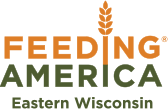"Heat and Eat" Cuts Implemented
What is Heat and Eat?
The amount of FoodShare benefits a household receives is based on net income, which is calculated by deducting certain allowable expenses from the household’s total gross income. This determines what resources the household has available for purchasing food to maintain a basic, nutritionally adequate diet. To streamline the enrollment process, all households that pay for certain utilities receive the same deduction, regardless of how much they actually pay. Any FoodShare household that receives home energy assistance from the Wisconsin Home Energy Assistance Program (WHEAP) automatically qualifies for the maximum standard utility allowance.
Beginning in 2009, this maximum standard utility allowance was extended to all FoodShare households through a policy known as “Heat and Eat.” In order to provide this allowance to all FoodShare households, even those who did not have to pay for heat, WHEAP issued a one-time $1 payment each year to FoodShare households that did not independently request home energy assistance from WHEAP. Wisconsin is one of 16 states that implemented a Heat and Eat policy.
Farm Bill Changes
The Farm Bill passed by Congress last year included cuts to the Heat and Eat provisions. Previously, households that received any payment from their state’s Low-income Heating Assistance Program (LIHEAP or WHEAP in Wisconsin) qualified for the maximum standard utility allowance. The Farm Bill increased the minimum required payment to $20. As a result, WHEAP will no longer be automatically issuing payments to all FoodShare households that do not independently apply for assistance, and the maximum standard utility allowance will no longer be automatically applied to all FoodShare households. These changes went into effect on April 28, 2014.
Impact of Heat and Eat Changes
The Heat and Eat cuts are expected to reduce SNAP (FoodShare) benefits for approximately 850,000 households nationwide, with an estimated average loss of $90 in monthly benefits per impacted household. FoodShare rules stipulate that only those shelter expenses that exceed half of the household’s net income can be deducted. Adding the maximum standard utility allowance to other shelter costs raises total shelter costs to more than 50 percent of total net income for some households, allowing them to qualify for additional FoodShare benefits.
FoodShare households that have received a WHEAP payment in the last 12 months at their current residence and FoodShare households that have verified they pay a heating expense should see no change to their FoodShare benefits. Households that do not have a heating expense could see a decrease in benefits.
Federal and state officials recently determined that these cuts were incorrectly applied to FoodShare recipients living in subsidized housing. If you know someone living in subsidized housing whose FoodShare benefits have been cut since April 2014, please have them follow these steps to make sure they are receiving the maximum standard utility allowance.
Any household applying for FoodShare or completing a FoodShare renewal should report all utility bills they are obligated to pay.

